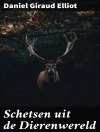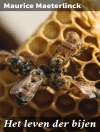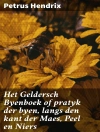This book will help beekeepers understand the fundamentals of beekeeping science. Written in plain and accessible language by actual researchers, it should be part of every beekeeper’s library. The respective chapters not only present raw data; they also explain how to read and understand the most common figures. With topics ranging from honeybee nutrition to strains of
Varroa resistant bees, from the effects of pesticide chemicals to understanding diseases, and including a discussion of venom allergies, the book provides essential “knowhow” that beekeepers will benefit from every time they inspect their hives. Further, each chapter ends with the author explaining how beekeepers can (or cannot) directly utilize the information to enhance their beekeeping operation.
The text is structured to facilitate ease of use, with each author addressing the same four issues: 1) What are the specific purposes or goals of these experiments? Or more simply:what have these studies taught us? 2) How should a non-scientist read the data generated? 3) What are the key points in relation to practicing beekeepers’ goals? 4) How can the data or techniques discussed be applied by beekeepers in their own apiaries? This approach allows readers to look up specific information quickly, understand it and even put it to use without having to read entire chapters. Further, the chapters are highly readable and concise. As such, the book offers a valuable guide and faithful companion for all beekeepers, one they can use day in and day out.
Зміст
Nutritional supplements in Honey bee management (Diana Sammataro).- Fungi and Fungicides (Jay Yoder).- Role of nutrition on Honeybee queen Quality (Gloria D. Degrandi-Hoffman).- Population genetics of honey bees in the United States (Deborah Delaney).- Breeding and selecting Varroa resistant honey bees (Jeff Harris).- Varroa control and bee breeding for varroa tolerance (Y’ves Le Conte).- Pheromone priming in Honey Bees (Y’ves Le Conte).- Effects of microbial population differences in Honey Bees (Paul Niemczura, Russell Vreeland).- The phenomenon of swarm intelligence (SI): solving cognitive problems by a group (Kirk Vischer).- The benefits of propolis (tree resins) to Honey bees (Marla Spivak).- The role of Nosema disease in Colony Collapse Disorder (Marla Spivak).- Queen rearing and instrumental insemination (Susan Cobey).- Using epidemiology to understand and improve honey bee health (Dennis Van Englesdorp).- Epidemiology and pathogenesis of honey bee viruses (Nor Chejanovsky and Yori Slabezky).- Foulbrood diseases in Honey Bees (Elke Genersch).
Про автора












